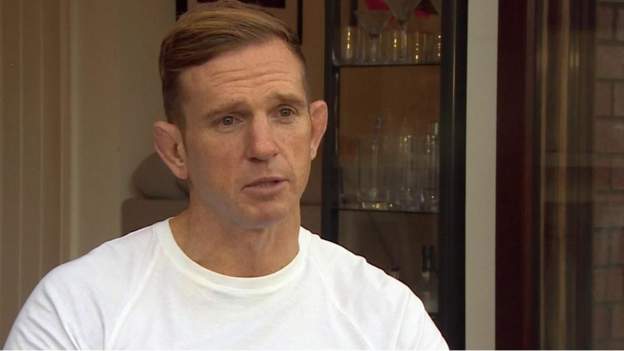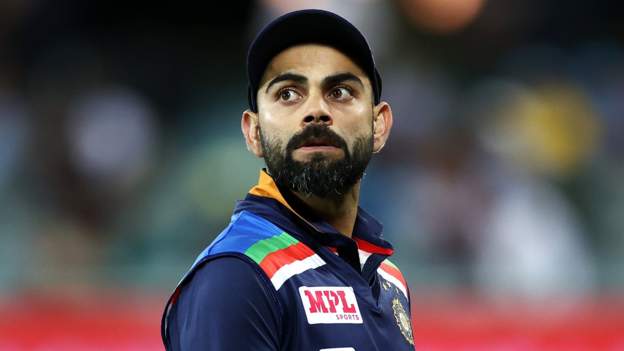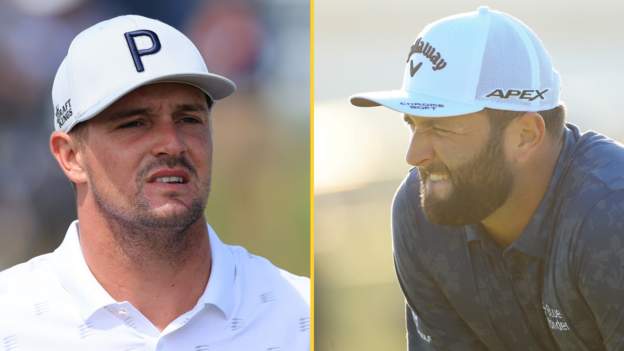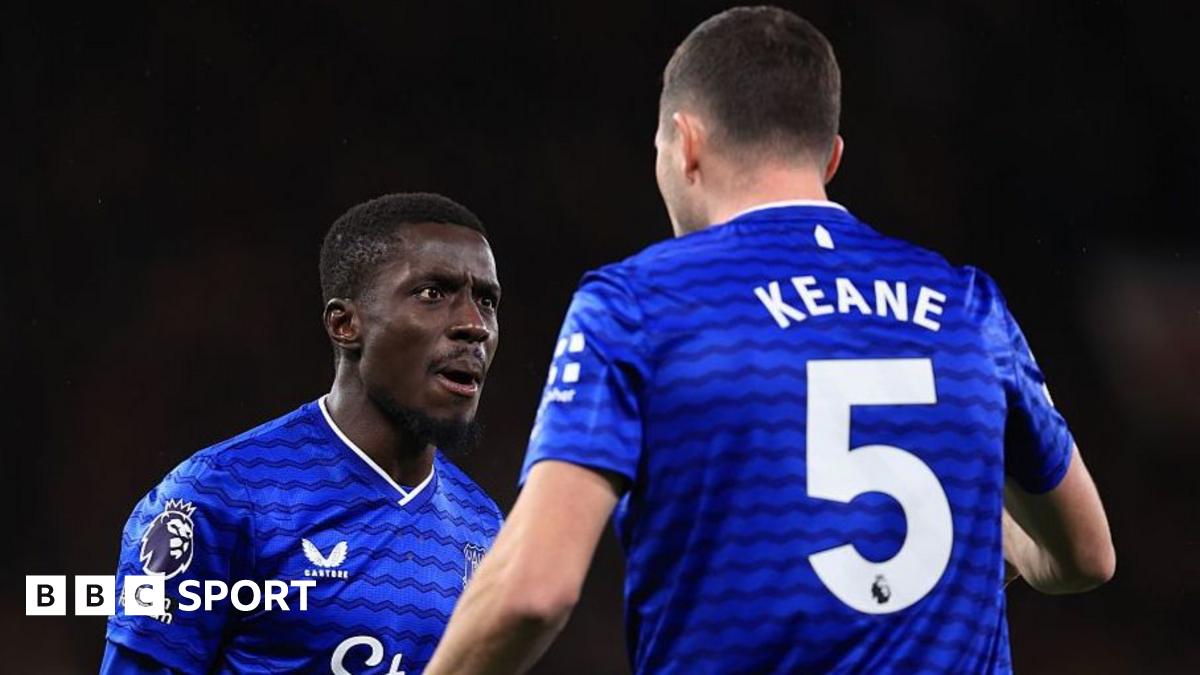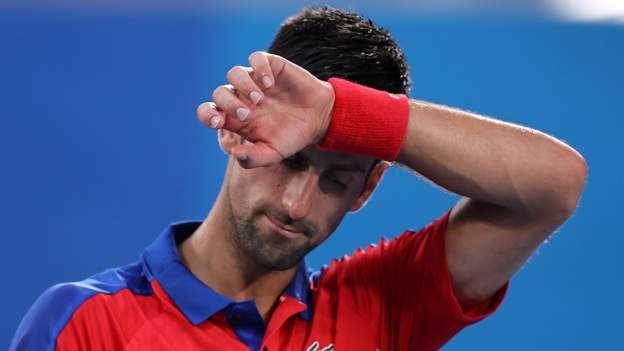In a house in Newport, three-year-old Darcy Popham plays with her toys in front of the family Christmas tree.
Pointing at her dolls’ house, she’s explaining, with some conviction, why you should never put a table and a bed in the same room.
In the room in question, there’s a small figure of a bear with a light blue dress on, lying in front of a little table with one arm in the air, apparently in agreement.
It seems to make perfect sense to me.
“She’s going to big school next year,” says mum Mel, pulling back her daughter’s blonde hair.
I suspect both the bears and mum are going to miss her.
Dad Alix is never far away.
Darcy has his piercing blue eyes, but she won’t be following in his footsteps.
“She’s actually a really good football player,” says the former Wales and Scarlets number eight, with more pride than disappointment.
Interior design or football it is, then.
Alix, Mel and Darcy Popham are a happy trio.
Yes, they are playing up a little for the TV cameraman, who is doing his best not to step on one of their four pet dogs, but there’s no faking what the Pophams have.
It’s a bond that’s been forged, not only in DNA but also in extreme adversity.
Just over a year ago, 42-year-old Alix was diagnosed with early-onset dementia.
The Pophams have already been open and honest about how their world fell in on them; about how this was not the plan and how they spent weeks in shock and in tears.
They invited me to interview them at their home just weeks later – it was as raw and emotional as it gets.
Mel even admitted to fainting just hours before we turned up but she was determined that their story should be told.
The story is now well known.
Alix and Mel are convinced Alix’s condition is the result of years of head knocks sustained on the rugby field and in training.
He, and others like him, are taking on the game’s governing bodies in a legal fight that could set a precedent about how sport deals with concussion, and compensates those who may now be suffering as a result.
Now, more than 150 former players, from journeymen to British and Irish Lions, have joined the fight and a group action is expected to be formally launched this year.
The lawyers will do the hard yards in this particular tussle so Alix is focusing his attention and energy on helping others in a similar position.
Head for Change is a charity set up by Alix and Mel for sportsmen and women who fear they are suffering mentally as a result of concussions.
They want it to be seen as a safe space for like-minded people to share, confidentially, what their fears are and hopefully get the help they need.
But it is not just former players who are reaching out.
“I’ve had conversations over the last year with around 20 players who are still involved in the game,” says Alix.
“They’re scared about coming forward and getting tested because they are scared of losing their jobs – that just isn’t right.”
Others have called him in the depths of despair.
“I’ve had interventions when people are suicidal and trust me, they are not nice texts to get,” Alix adds.
“Thankfully we were able to get them the help they needed and things are more positive, but this is a real issue right now.”
Talking to Alix and Mel, one year on from the last time, it is clear they have decided to throw themselves fully at this.
The fight with the governing bodies will play out in the courts, potentially over years, but for obvious reasons, for the Pophams, this is a matter of life and death right now.
They seem genuinely invigorated by the challenge – like the despair has also delivered them with an opportunity.
“This isn’t something we need to focus on when more research comes out – the research is there,” says Alix.
“One study shows 23% of current players with brain abnormalities – 50% of them are showing a brain that has decreased in size.
“Things need to change as soon as possible.”
The tears that Mel could not hold back when she spoke to me last year have been replaced by a torrent of ideas – she is bouncing with enthusiasm and has a huge appetite to make a difference.
“Thinking back to two or three years ago when things were happening to us before the diagnosis, and thinking about how hard that was for both of us, it’s really upsetting to think there are others out there going through the same thing – people who aren’t aware that help and support is out there. I’m here to say that there absolutely is – do not suffer alone with this,” she says.
Alix has already talked about his fears that Darcy will grow up without a dad. He has been candid with me that he might never walk her down the aisle on her wedding day, but is determined to make sure others do not have to feel that pain.
He is also encouraged that change is coming, but frustrated that it seems to be taking time.
World Rugby has put forward guidelines that would see full contact in training sessions limited to 15 minutes, something Alix and others have been campaigning for.
“There’s not much more we can do to make the game safer on a Saturday,” he says.
“But we can absolutely impact training sessions like the NFL did over a decade – we need to make limited contact in training mandatory.”
Calls will be made to see who can be spoken to and contacts will be used to see what avenues can be opened in a bid to get there sooner.
Husband and wife drive each other on and it is an impressive dynamic to witness.
Change is coming to rugby and right in the eye of the storm, the Pophams are more than playing their part.










